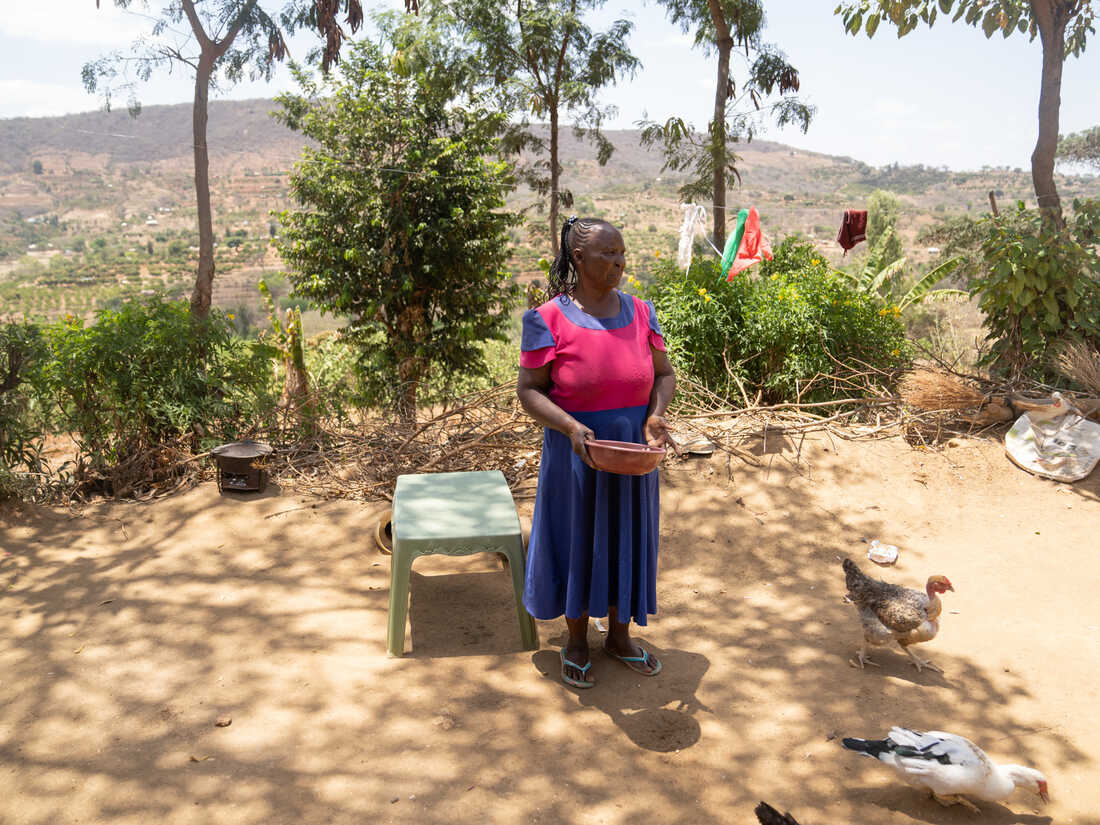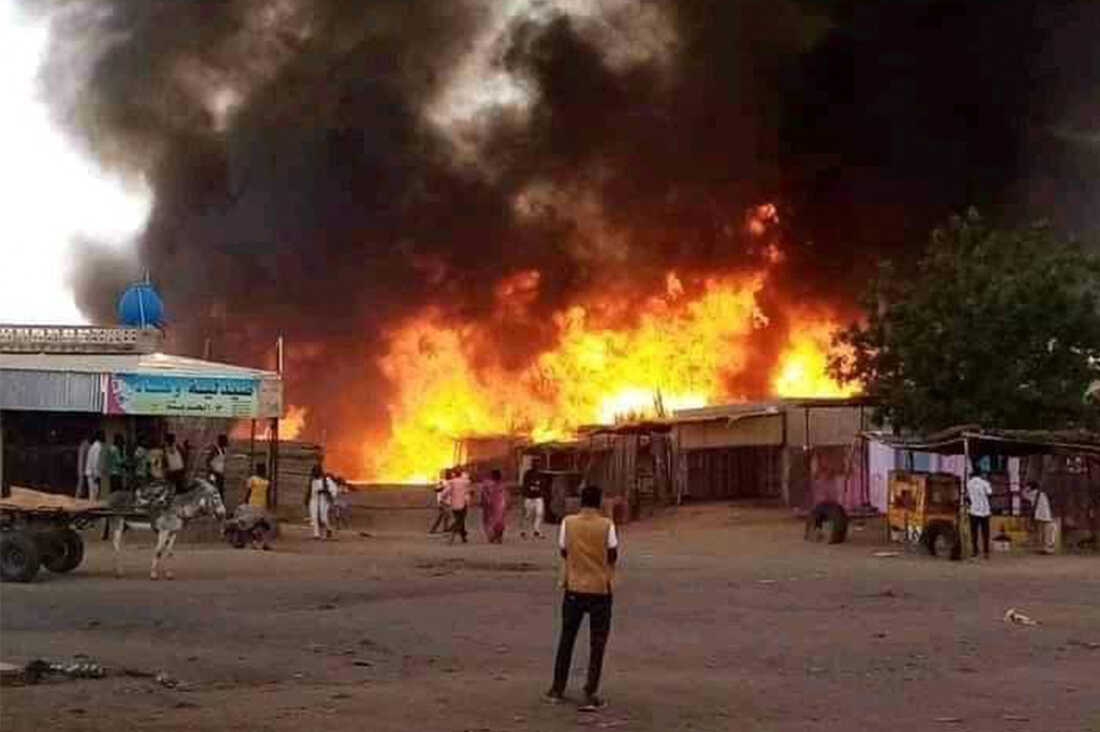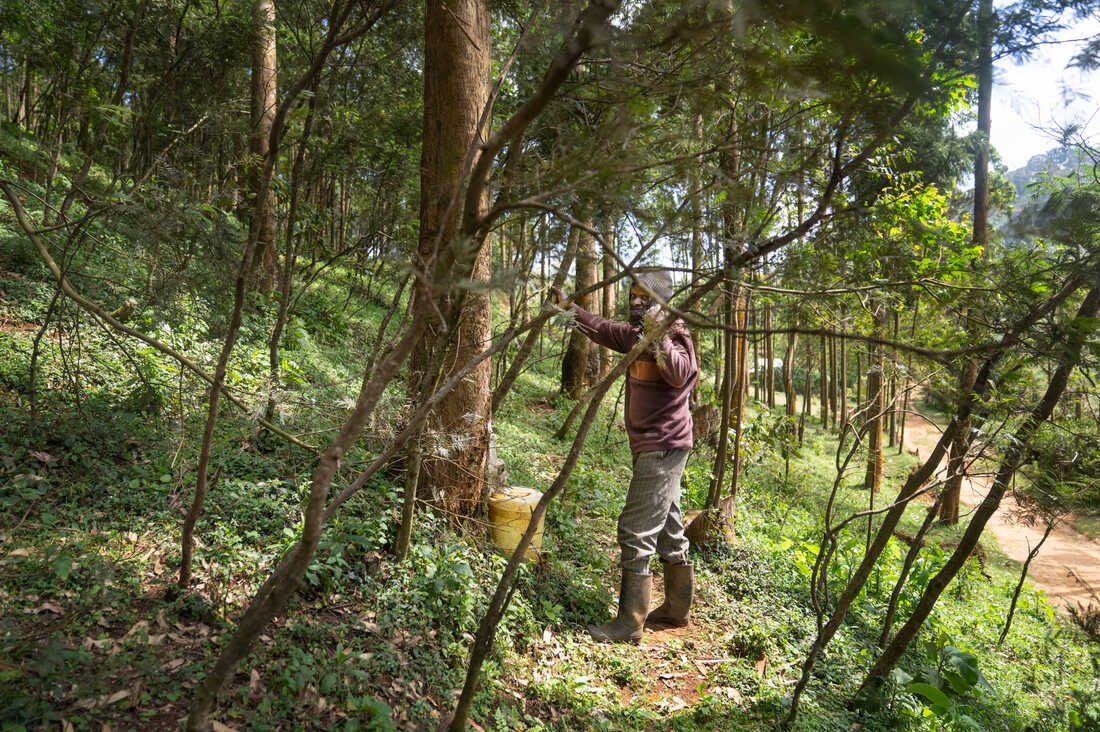Last month's coup in Gabon ended a family's half century hold on power
By Steve Inskeep|Emmanuel AkinwotuA look inside the Central African nation of Gabon, after the fall of a political dynasty that ruled the country for over half a century. Gabon is the latest African country taken over by the military.
A defaced billboard of Gabon President Ali Bongo Ondimba is seen on an empty street of Libreville, Gabon, Wednesday Aug. 30, 2023. Mutinous soldiers speaking on state television announced that they had seized power in and were overturning the results of a presidential election that was to extend the Bongo family's 55-year hold on power. Yves Laurent/AP hide caption
toggle caption Yves Laurent/APA defaced billboard of Gabon President Ali Bongo Ondimba is seen on an empty street of Libreville, Gabon, Wednesday Aug. 30, 2023. Mutinous soldiers speaking on state television announced that they had seized power in and were overturning the results of a presidential election that was to extend the Bongo family's 55-year hold on power.
Yves Laurent/APSTEVE INSKEEP, HOST:
We now have a glimpse of life after a coup in Gabon. For over half a century, one family dynasty ruled the oil-rich central African country. Then, in an early morning broadcast, a group of military leaders said they had seized power after a disputed election. President Ali Bongo became a statistic - the latest African head of state to be swept out of office in a military takeover. NPR's Emmanuel Akinwotu, who is in Gabon's capital, Libreville. Hey there.
EMMANUEL AKINWOTU, BYLINE: Good morning, Steve.
INSKEEP: What are you hearing from people there?
AKINWOTU: Well, traveling in and around the city, the capital, it's pretty - actually, it's pretty hard to find someone who isn't really happy to see the back of Ali Bongo. You know, I've heard many people describe his government as a monarchy, as an oligarchy and as a kleptocracy. You know, I spoke to 33-year-old woman called Winnie Minko.
WINNIE MINKO: It is important to mention that talking about Gabon, do not just say it's a coup. Here we're talking about salvation.
AKINWOTU: You know, she essentially said that while it was a military takeover, it was also a moment of salvation for many Gabonese people because this was a government that most people feared they'd never be free from. And now they are. And I think there's largely been this sense that while outside of the country, the coup's been seen as part of this troubling trend of coups in Africa. But internally, while people recognize that, they see this in their own specific context, and that context is the ending of Bongo family's grip on the country.
INSKEEP: What is the status of former president - I guess we should say - former President Bongo?
AKINWOTU: Yeah. Well, he's been released from house arrest. He's reportedly still in Libreville at his personal residence in the city. You know, his family are in and out of the country. One of his sons, who was actually tipped to succeed him, has been arrested. The new military leader is actually his relative, too. And he himself has been revealed to have bought foreign properties, paid in cash, worth over $1 million in the U.S. But he's been largely welcomed by many people in the country, although some people are upset that many of the figures in the old government are again part of the new transition government.
But, you know, Gabon is theoretically this middle-income country, has the third highest GDP per capita in Africa, according to the World Bank. But these indices, they really belie the reality most people live through. You know, the country's large oil wealth hasn't benefited so many people here in the way it should have. So many roads are crumbling. The housing is decrepit. You know, there's a lot of deep resentment about how so much of the country's resources has been plundered.
You know, Bongo was also heralded as maybe one of the most environmentally conscious leaders in the world, particularly by Western leaders and conservation groups. But, you know, that's because most of the country is covered in rich biodiverse forestry that he worked to protect. But one environmental activist I spoke to yesterday described it as greenwashing, in his words, and said that this helped to burnish his image abroad.
INSKEEP: I really appreciate the different perspectives you're bringing us here, Emmanuel. You're telling us that this coup, which we would disagree with in principle, is being welcomed, at least by a lot of people, in Gabon because they were saddled with this leader, this ruler, for so long. But then you're telling me that he was toppled by a relative who seems to have been part of the insider group and has his own suspicions against him? How is the new government, if at all, making the argument that they are real change?
AKINWOTU: Well, they've done - they've made a lot of sweeping moves so far. You know, they have released political prisoners who were detained under President Ali Bongo. They have introduced some - many of the old figures in the old government, but also some new figures, too. They have really kind of endeared themselves to the people by trying to show that the transition is going to bring genuine change, that there will be genuine elections in two years' time - roughly two years time. They've spoken to civil society groups, opposition politicians. And so they're really leading this kind of very open process of talking to various stakeholders and trying to show Gabonese people that they are drawing a line under the past government.
INSKEEP: NPR's Emmanuel Akinwotu is in Libreville, Gabon. Thanks so much for your insights.
AKINWOTU: Thanks, Steve.
Copyright © 2023 NPR. All rights reserved. Visit our website and pages at for further information.
NPR transcripts are created on a rush deadline by an NPR contractor. This text may not be in its final form and may be updated or revised in the future. Accuracy and availability may vary. The authoritative record of NPR’s programming is the audio record.



